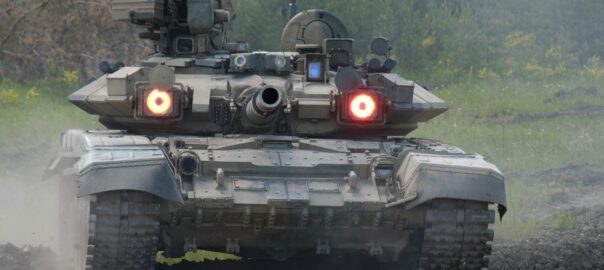By Kent R. Kroeger (Source: NuQum.com; April 4, 2022)
Could anyone have predicted, years in advance, Russia’s February 24th invasion of Ukraine?
The answer is so emphatically ‘Yes!,’ it is hard to fathom what the counter-argument might be.
Perhaps we should start with the main instigator himself, Russian President Vladimir Putin, who said to American film director Oliver Stone four years ago during an interview, “I believe that Russians and Ukrainians are one people … one nation. In fact, when these lands that are now the core of Ukraine joined Russia … nobody thought of themselves as anything but Russians.”
And we are surprised that, as U.S. and NATO allies supplied Ukraine over the past five years with millions of dollars with some of the most sophisticated anti-armor and anti-aircraft weapons in existence, Russia would decide to respond?
Barack Obama’s administration was at war with itself over whether to significantly arm Ukraine in its defense against Russia, but it took Donald Trump’s deep-seeded insecurities to end that debate. Trump poured gas on a flammable situation when he approved the sale of anti-armor Javelin missiles to Ukraine in 2019. The Biden administration’s subsequent increase in military assistance to Ukraine, including 300 additional Javelin missiles as part of a $200 million military package delivered in January 2022, only ensured that war would break out between Russia and Ukraine.
Is Russia ultimately responsible for this war? Of course. Did the U.S., Europe and Ukraine make a credible effort to prevent it? The answer appears to be ‘No.’
Why does this debate about predictability even matter?
Because, as predictable as the invasion may have been, it was most likely preventable. And because it was preventable, what alternative paths could have been followed that could have preserved Ukraine’s independence without the current bloodshed?
Ukrainian President Volodymyr Zelensky, elected in 2019, placed a negotiated peace with Russia near the top of his agenda.
Whether or not, due to the actions of others or his own failure, Zelensky did not achieve his most central promise to the Ukrainian people.
As of today, as many as 4,600 Ukrainian soldiers have died, along with 3,400 civilians and, as yet, unknown damage has been inflicted on Ukrainian infrastructure and economic capacity.
Today, as the Russians are apparently withdrawing from areas around the Ukrainian capital, Kyiv, the Ukrainian people can’t be blamed for asking, was this bloodletting necessary to ensure Ukrainian independence? Is NATO membership for Ukraine this valuable? And is NATO even relevant anymore given Russia’s demonstrated inability to conduct an effective military operation against a significantly weaker country along Russia’s most important defensive border?
Russia’s conventional military is clearly not a meaningful threat to democratic Europe anymore. They wouldn’t get past Warsaw if they tried.
And while the Ukrainians may have won their freedom on the battlefield, at what cost did it occur? And could an equal, if not superior, outcome have been achieved without the needless bloodshed?
That is for the NATO allies to ponder and the Ukrainian people to decide when they go to the polls to elect their next president, most likely in 2024.
- K.R.K.
Send comments to kroeger98@yahoo.com
